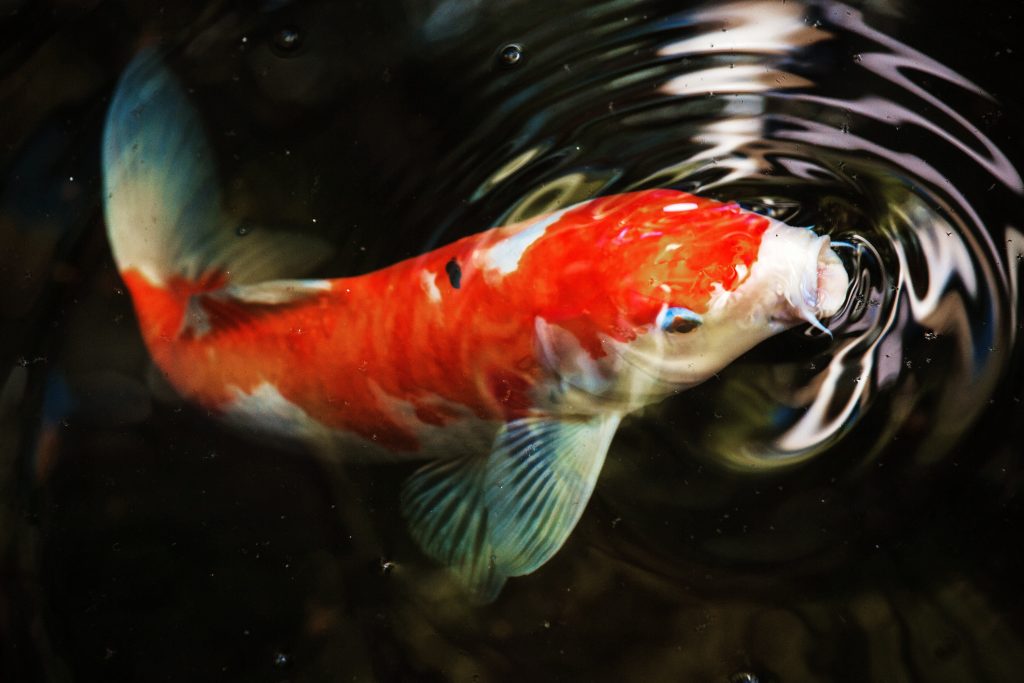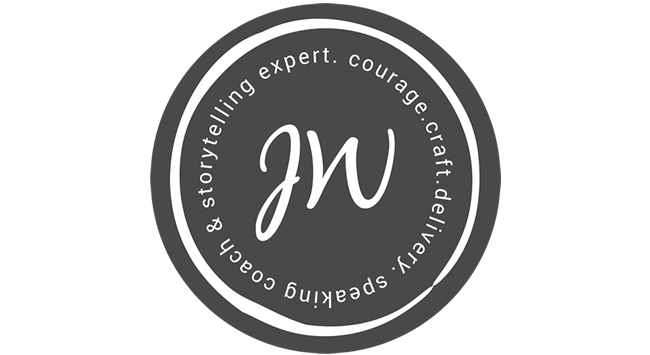Pause… and let everyone know you’re in charge
June 22nd, 2018
A couple of weeks ago I talked about how to lose the dreaded (or beloved, as the case may be) filler words. (Um, and, so, uh, y’know, really…etc). Here’s that post if you missed it. One of the key ways to get rid of filler words is to PAUSE, so that’s what I’m gonna talk about today…
BECAUSE A PAUSE IS A STRAIGHT SHOT TO OWNING THE STAGE!!!
Learning to play with pauses can transform your speaking, (and yourself!).
I’m talking about the integrated, spacious, heart-centered, connectable pause. Not the awkward, heavy, forced, is-she-ok? pause.
Here are a few reasons why pauses are the bomb:
1. It gives your audience space to integrate what you’re saying. Rather than shoving word after word down their throat, you give them space to let your message land and resonate. Your audience will be grateful when you do that because it will help them get your message.
2. It gives your brain an opportunity to catch up with your mouth. Your mouth seems to think if it just keeps filling the space with words, no one will notice that you’re actually there, saying stuff, claiming your authority, conveying to the world that you have something to say. When you pause, you catch up with yourself, then your voice, breath, heart, mind, and body are all on the same page.
3. It shows the audience that you’re in charge. You own the space. You’re not being driven by your nerves, or the clock, or any urgency to fill the space. You OWN it. Your power shines. A pause communicates that.
4. It connects you to your breath. Breath is an intimacy creator. If you’re connected to your breath, it’s more likely that your audience is connected to theirs, and listening, and engaged, and feeling connected to you. That equals intimacy with your audience. A pause can also remind you to breathe. And when you’re breathing mindfully, your breath can remind you to pause.
5. It adds meaning to your speech. Well-placed pauses convey meaning. They help your audience understand what you’re trying to say. They serve as a cue to the audience that lets them know what’s coming next, what’s important, and what they need to remember
OK so you know that pauses are the bomb, but how in the world do you remember to pause when you’re speaking? And not just have a bunch of dead air surrounding you?
# 2: THE “I’m-not-talking-til-you-stop-talking” OPENING PAUSE
I was a slam poet back in the early days of slam poetry. In fact, reading at poetry slams (different from the story slam I co-produce) was a big part of how I learned to speak with power and presence…but that’s another story.
I was living in Baltimore and went to a poetry slam at the Baltimore Contemporary Art Museum. The vibe was raucous and loud, with the audience hooting and hollering and carrying on. Each poet would come to the stage, basically yell their poem and try to speak louder than the audience.
When it was my turn, I went to the mic and stood in a long silent pause until you could hear a pin drop in that space. Then I spoke my poem into that silence.
I felt like I owned the world.
There’s nothing like a powerful pause the moment you walk on stage to communicate to the audience that you’re the one in charge and have them lean in to hear what you’re going to say.
# 2: THE “Oh-shoot-I’ve-gone-completely-blank” PAUSE
I confess that when I gave my talk “A Long Drink of Water,” I was less prepared that I could have been, and in fact was editing my talk in the dressing room right before the show. Which meant I didn’t have it in my bones the way I like to and the way I encourage my clients to.
So when I went TOTALLY BLANK and found myself deep in the vast void of emptiness and terror, with NO CLUE what to say next, I just paused. I leaned into the pause and stayed in the room. I didn’t panic, or run, or fill the space with a bunch of words.
For a long time I paused. An uncomfortably long time. But I sold the pause, so it looks like I knew exactly what I was doing. Turns out it was a powerful pause and just the right spot.
The Pause Gods must have been paying attention.
#3: THE “I’m-a-Grammar-Nerd!” PUNCTUATION PAUSE
You know how when you’re writing or reading, you’ve got commas, periods, new paragraphs & new chapters.
Your eye pauses briefly at the comma, a little longer at the period, still longer at the new paragraph. At the new chapter maybe you put the book down and look up at the sky for a minute. Try that with speaking.
Try a short pause at a comma, a longer pause at a period, and a still longer pause at a new thought. When you’re shifting gears altogether, pause substantially, perhaps as you move to a new spot on the stage.
Your pause signals to the audience: “Take a break here. I’m shifting gears. Now come with me to a new place. Here we go….”
If you slow down enough and pause with the punctuation, that will help you notice the filler words that are slipping in, and serve as a reference point for future pausing.
#4. THE “I-have-something-to-say-that-I-want-you-to-hear” PAUSE
Once you’ve got your punctuation pauses down, identify the power moments in your talk. Words or phrases that you know you want your audience to hear.
When you speak these words, allow for a pause after the word or phrase. Let the words land. Don’t run away from your own power. Feel the resonance of your words in the hearts of your audience. Don’t steamroll over these power moments. Give them space.
When you feel the power of your words, you won’t want to fill them up with UMs and AHs. You’ll get a glimpse of your own power and say “Yeah howdy, that feels good!”
#5: THE “What-if-you-consider-this-powerful-question?” PAUSE
Ask a question. A question that invites your audience to consider a new perspective, a question that challenges their previous thinking.
But here’s the magic trick: When you ask the question, REALLY ASK! You’d be surprised how many people ask a question and then roll right on to the next thing.
When you ask a question, pause and let your audience consider the question. Even if they’re not answering it aloud, it’s important that you give them a pause to let it land.
#6 THE “I’m thinking” PAUSE
This is different from the “I’ve gone completely blank” pause because you really are thinking. In the I’ve gone blank pause, your brain has gone into flight or freeze mode and you have to breathe your way back to the present moment.
In the “I’m thinking” pause, you haven’t frozen–you really are thinking. Give yourself the space to think. The big mistake speakers so often make is that they think they have to keep talking, so when they hit this spot, they just yak and yak and ramble their way through it.
You get to pause and think. You get to consider the next thing you’re going to say until you know what it is. Don’t apologize, don’t make excuses, don’t panic. Just pause and think.
#7: THE “I’m-shaking-in-my-boots-but-I’m-cool-with-that” PAUSE
Pausing can be uncomfortable. Sometimes it seems easier to race right through, ram it all out there and then leave. We’ve been working with pauses in Speaker’s Playground for the last few weeks, and I always ask folks to pause longer than is comfortable. Then longer. And yep, even longer.
They’re thinking “You’re crazy! I can’t pause that long!! My audience will fall asleep!!” When in fact, what feels like an interminably long pause to you is, in most cases, a pause that truly invites your audience IN to a deeper connection.
So being willing to hang in with that discomfort is a valuable skill.
Plus, when you lean in to the discomfort, rather than running from it, you get to bring more of yourself to your presentation. You start to notice what it feels like for YOU to be in the drivers seat rather than your nerves.
And that discomfort becomes a battery pack for your power.
I invite you to play with some pauses!
Notice the possibility for real connection and presence right at the center of that pause.
If you want some practice opportunities to play with your pause, come join me in Speaker’s Playground. There’s a Tuesday evening group and a Thursday morning group in Boulder, CO. Your first session is free, so you’re welcome to come check it out.
Email us to let us know when you’d like to visit, and we’ll send all the details.
Now go forth and PAUSE!!
« How to stop saying UM once and for all! | What should I do with my freakin hands?!?! »



 FACEBOOK
FACEBOOK INSTAGRAM
INSTAGRAM LINKEDIN
LINKEDIN SUBSCRIBE
SUBSCRIBE
Leave a Reply